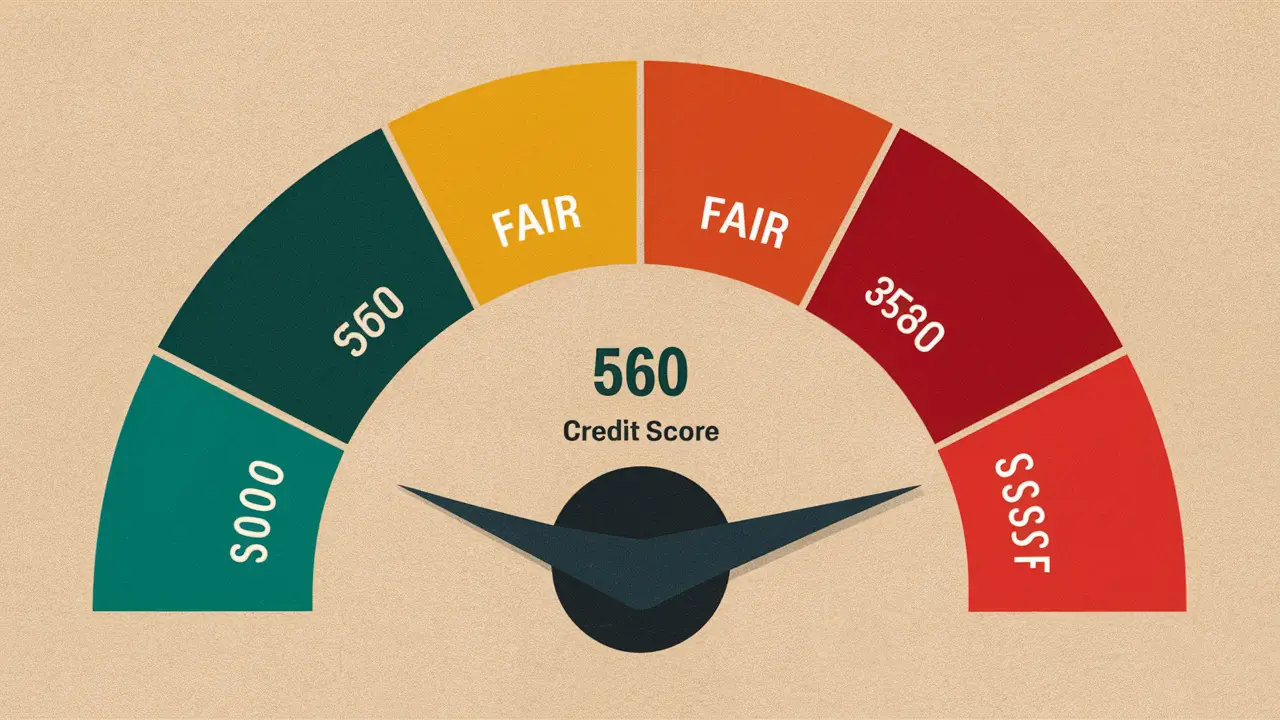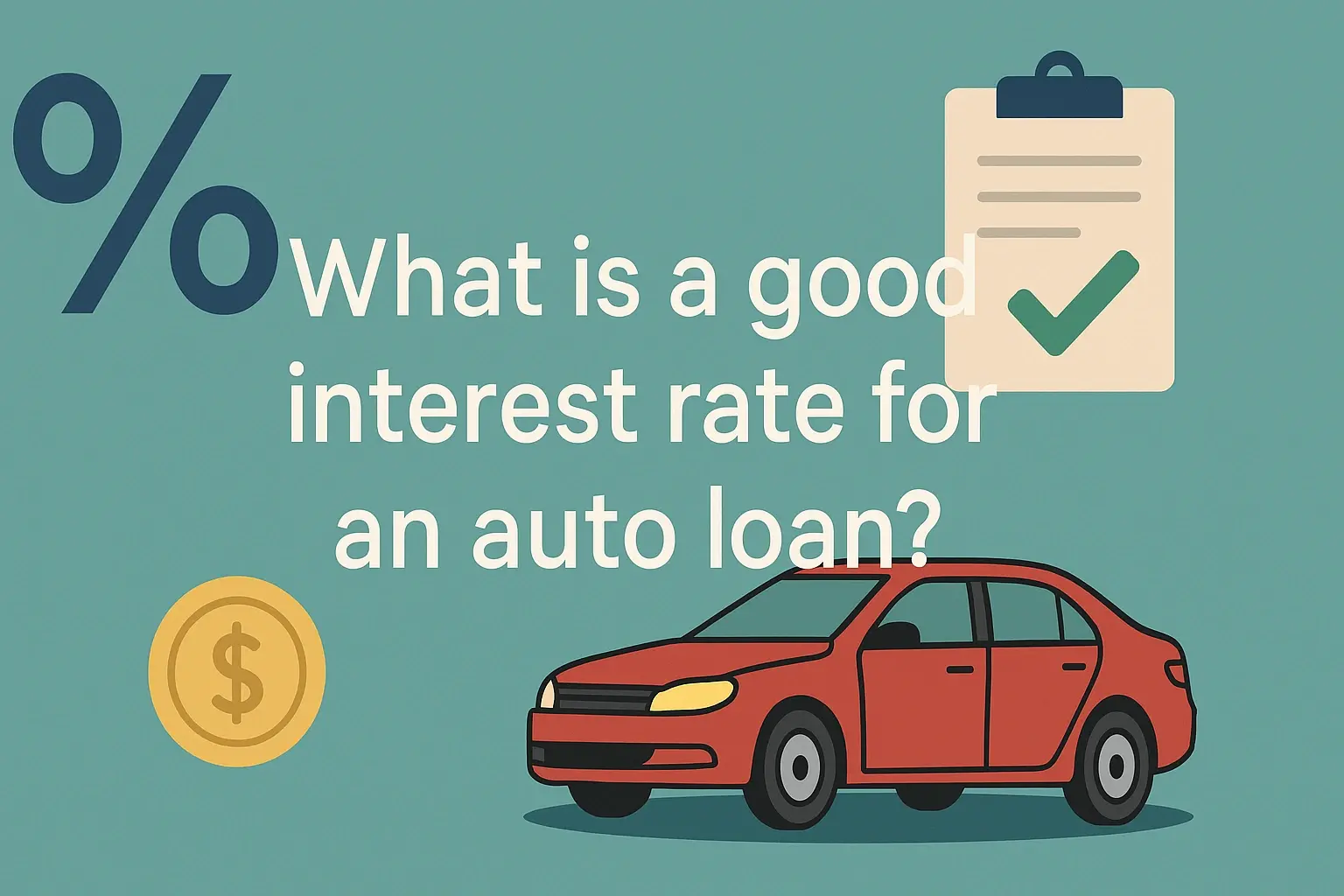-
Posted on: 25 Jul 2024

-
Understanding your credit score is crucial for navigating the financial landscape. A credit score of 560 falls within a specific range that significantly impacts your access to credit and financial opportunities. This comprehensive guide explores exactly how bad a 560 credit score is, its potential consequences, and actionable steps you can take to improve it.
Understanding the Credit Score Scale
Before diving into the specifics of a 560 credit score, it's essential to understand the general credit score scale. The two most commonly used scoring models are FICO and VantageScore. While the exact ranges may vary slightly, they generally categorize credit scores as follows:
- Exceptional: 800-850
- Very Good: 740-799
- Good: 670-739
- Fair: 580-669
- Poor: 300-579
Therefore, a 560 credit score firmly places you in the "Poor" credit category. This classification carries significant implications for your financial life.
The Impact of a 560 Credit Score
Having a poor credit score like 560 can affect various aspects of your financial well-being. Let's examine the key areas where you'll likely experience challenges:
Difficulty Obtaining Loans and Credit
Lenders view individuals with poor credit scores as high-risk borrowers. This makes it significantly harder to get approved for loans and credit cards. When lenders perceive a higher risk, they are less likely to extend credit.
- Mortgages: Securing a mortgage with a 560 credit score is extremely challenging. Most lenders require a minimum score of 620 or even higher for conventional mortgages. Government-backed loans like FHA loans might be an option, but even those often come with stricter requirements and higher interest rates.
- Auto Loans: While you might be able to find a lender willing to finance a car purchase, expect significantly higher interest rates and potentially larger down payment requirements.
- Personal Loans: Personal loans are often used for debt consolidation or unexpected expenses. With a 560 credit score, your chances of approval are slim, and the terms will be unfavorable.
- Credit Cards: Applying for traditional credit cards with rewards and benefits is unlikely to be successful. You might be limited to secured credit cards (requiring a cash deposit as collateral) or subprime credit cards with high fees and low credit limits.
Higher Interest Rates
Even if you are approved for a loan or credit card with a 560 credit score, you will almost certainly be charged significantly higher interest rates. Lenders justify these higher rates as compensation for the increased risk they are taking. Over the life of a loan, these higher interest rates can cost you thousands of dollars.
Example: Imagine you're approved for a $10,000 auto loan. Someone with excellent credit might receive an interest rate of 4%, while you, with a 560 credit score, might be offered a rate of 15%. The difference in the total amount paid over the loan term would be substantial.
Higher Insurance Premiums
In many states, insurance companies use credit-based insurance scores to determine premiums for auto and homeowner's insurance. A lower credit score can result in higher insurance rates. While the correlation between credit and insurance risk might not seem obvious, insurers argue that credit history is a reliable indicator of responsible behavior, which translates to lower claims risk.
Difficulty Renting an Apartment
Landlords often check credit scores as part of the tenant screening process. A poor credit score can make it difficult to rent an apartment, as landlords may view you as a higher risk of defaulting on rent payments. You might be required to pay a larger security deposit or find a co-signer.
Challenges with Utility Services
Some utility companies (e.g., electricity, gas, water) may check your credit score before providing service. A poor credit score could lead to the requirement of a security deposit to establish service.
Limited Financial Opportunities
Beyond specific loan and credit products, a low credit score can indirectly impact other financial opportunities. For instance, it might affect your ability to get a job in certain industries, particularly those involving financial responsibility or security clearances. It can also affect your ability to get certain types of licenses and certifications.
What Contributes to a 560 Credit Score?
Understanding the factors that contribute to your 560 credit score is crucial for developing a plan to improve it. The most important factors include:
- Payment History (35%): This is the most significant factor. Late payments, missed payments, and defaults have a major negative impact.
- Amounts Owed (30%): High credit utilization (the amount of credit you're using compared to your total available credit) hurts your score. Aim to keep your credit utilization below 30%.
- Length of Credit History (15%): A longer credit history generally helps your score.
- Credit Mix (10%): Having a mix of different types of credit (e.g., credit cards, installment loans) can be beneficial.
- New Credit (10%): Opening too many new credit accounts in a short period can lower your score.
To understand why you have a 560 credit score, it's essential to review your credit reports from all three major credit bureaus: Experian, Equifax, and TransUnion. You can obtain a free copy of your credit report from each bureau annually at AnnualCreditReport.com.
Steps to Improve Your 560 Credit Score
Improving a 560 credit score takes time and effort, but it is certainly achievable. Here are some steps you can take to raise your score:
1. Pay Bills on Time, Every Time
This is the most crucial step. Set up automatic payments whenever possible to avoid missing due dates. Even one late payment can negatively affect your credit score.
2. Reduce Credit Card Balances
Focus on paying down your credit card balances, especially those with high balances relative to their credit limits. Aim to keep your credit utilization below 30%. The lower, the better.
3. Become an Authorized User
If you have a trusted friend or family member with a credit card in good standing (i.e., on-time payments, low credit utilization), ask if they will add you as an authorized user. This can help boost your credit score, as the positive payment history on their account will be reflected on your credit report. Make sure the card issuer reports authorized user activity to the credit bureaus.
4. Consider a Secured Credit Card
A secured credit card requires a cash deposit as collateral. It can be a good way to build credit if you have limited or poor credit history. Use the card responsibly by making purchases and paying them off in full each month.
5. Review Your Credit Reports for Errors
Carefully review your credit reports for any inaccuracies, such as incorrect account information, late payments that you believe were made on time, or accounts that don't belong to you. Dispute any errors with the credit bureaus.
6. Don't Apply for Too Much Credit at Once
Applying for multiple credit cards or loans in a short period can lower your credit score, as it suggests to lenders that you are desperate for credit.
7. Be Patient
Improving your credit score takes time. It won't happen overnight. Stay consistent with your positive credit habits, and you will see progress over time.
How Long Will It Take to Improve My Credit Score?
The time it takes to improve your credit score depends on several factors, including the severity of your past credit problems and the steps you take to rebuild your credit. Some improvements may be visible within a few months, while more significant changes may take six months to a year or longer. Consistency is key.
When to Seek Professional Help
If you're struggling to improve your credit score on your own, consider seeking help from a reputable credit counseling agency. These agencies can provide guidance on budgeting, debt management, and credit repair. Be wary of companies that promise quick fixes or guaranteed results, as these are often scams.











